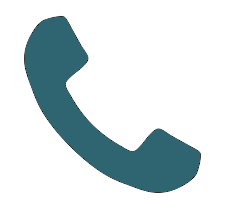The awareness regarding mental health disorders has significantly improved over the past couple of years. Still, there are a lot of stigmas attached to it. Due to the huge stigma associated with such conditions, sometimes it becomes hard to identify symptoms associated with them. Depression is one such mental disorder that has a huge prevalence worldwide. More than 300 million people worldwide are suffering from depression. This number is both huge and shocking. Being depressed feels like carrying a huge burden on your shoulder. Do you feel dull and tired all the time and have lost interest in the activities you once used to be interested in? It could probably be a sign of depression. Depression refers to a state which affects the way you feel, think and act in a negative manner along with other symptoms. Depression has a lot of other signs and symptoms that must not be ignored and depression treatment should be sought on time. Following are the symptoms, causes and the right treatment options for fighting off the depression.
Symptoms of depression
There are different kinds of depression, but many of them have similar recognizable symptoms. Some of the common signs and symptoms of depression are
- Consistent feelings of hopelessness, emptiness and sadness
- Restlessness, frustration and irritability
- Loss of interest in your favourite hobby
- Lack of energy and fatigue
- Difficulty in making a decision or concentrating
- Unexplained weight gain/loss
- Physical symptoms such as nausea, headache, stomach ache, and body pain
- Recurrent thoughts regarding suicide and self-harm
Types of depression
Just like there is no one symptom, no one cause for depression, similarly, there is no one type of depression. Various types of depression are as follows
Also Read : How to Treat Depression – Symptoms, Treatment, and Support?
Major depression
This is the most common type of depression. In this type of depression, there are recurrent depressive episodes throughout the life of a person.
Dysthymia
Dysthymia refers to the persistent low mood for more than over a year that is due to unexplained reasons.
Seasonal affective disorder
Some people are quite sensitive to a low amount of light during certain seasons such as winter time. This can evoke a sense of emptiness and grief in some individuals, which can be corrected by natural light.
Postpartum disorder
This type of depression is common in women who have recently given birth. In this condition, mothers may feel disconnected from their newborn.
Situational disorder
This type of depression is triggered by some unfortunate life events in the life of an individual. From losing a loved one or losing your job can be a trigger for such type of depression.
Causes of depression
There are various causes of depression depending upon the unique combination of an individual’s genetic makeup and environmental factors. There are several factors to take into account:
- The brain’s chemistry or physical structure
- History of depression in your family
- History of certain other conditions like anxiety and post-traumatic stress disorder)
- traumatic events or any sort of stress such as financial issues, the death of a loved one and any abuse
- Hormone changes in case of menstrual cycles or pregnancy are also one of the reasons for depression
- Certain medications like sleeping pills or medications for blood pressure can also lead to depression
Depression Treatment
There is no single treatment for depression, neither is there a single proven way to overcome depression. Usually, one or more methods are used concurrently. Some of the treatment options for depression are
Medical treatments
Antidepressant medications form the first line treatment of depression. These medications improve the level Some of the antidepressant medications are
- Selective Serotonin Reuptake Inhibitors (SSRIs) example sertraline; citalopram; Fluoxetine
- Serotonin and Noradrenaline Reuptake Inhibitors (SNRIs) example Venlafaxine; Duloxetine.
- Reversible Inhibitors of MonoAmine oxidase (RIMAs) example Moclobemide.
- Tricyclic Antidepressants (TCAs) example Nortriptyline, Clomipramine Imipramine; Amitriptyline.
- Noradrenaline – Serotonin Specific Antidepressants (NaSSAs) example: Mirtazapine.
- Noradrenalin Reuptake Inhibitors (NARIs) Example: Reboxetine.
- Monoamine Oxidase Inhibitors (MAOIs) example: Tranylcypromine.
Psychological treatments
Along with the medical treatment, psychotherapy is of great help for people suffering from depression. Therapies such as cognitive behavioral therapy (CBT), interpersonal therapy and behaviour therapies are generally employed to help patients overcome their state of depression.
Also Read : How to Find the Best Psychiatrist Near Me for Depression and Anxiety?
Other treatments
Other than psychological and medical treatments, several other measures could be taken to improve the current depressed state of a patient. Some of these measures are
- Maintaining a healthy lifestyle
- Seeking help from family and friends
- Meditation and relaxation
- Getting more aware of your condition
If you too are in the search for the best psychiatrist for depression treatment then Dr. Anil Yadav is the right name for you. Dr. Anil with all his years of experience has helped a lot of patients suffering from mental health condition to come out victoriously and start living their life normally once again. Book an appointment with Dr. Anil Yadav today.



